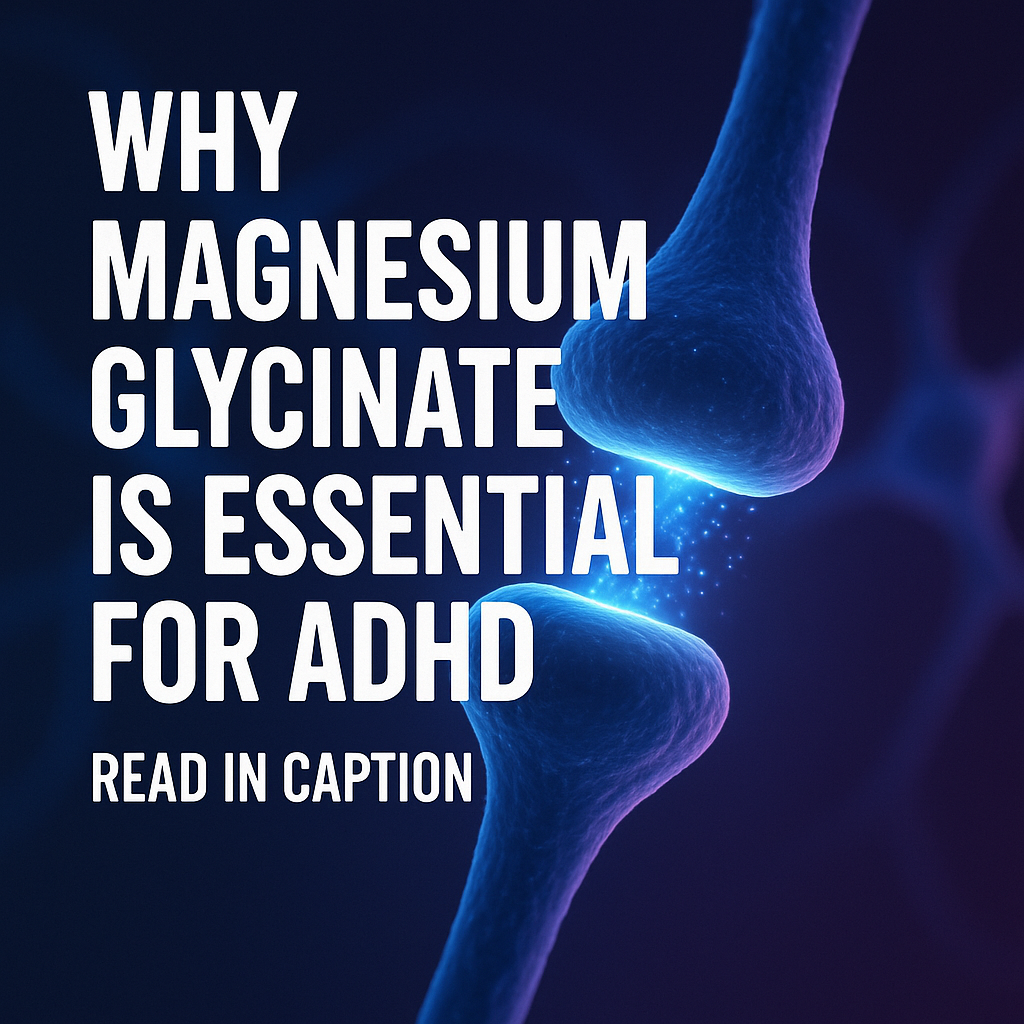
Magnesium for ADHD Brains: Exploring the Link Between This Mineral and Symptom Management
Share
When exploring ways to support ADHD management beyond traditional treatments, the mineral magnesium often enters the conversation. Known for its role in hundreds of bodily processes, including nerve function and muscle relaxation, could magnesium play a specific role in the ADHD brain?
What is Magnesium and Why is it Important?
Magnesium is an essential mineral involved in over 300 enzymatic reactions in the body. It's crucial for:
- Nerve Transmission: Helps regulate the signals sent between your brain and body.
- Muscle Function: Involved in muscle contraction and relaxation.
- Energy Production: Plays a role in converting food into energy.
- Blood Sugar Control: Helps regulate insulin sensitivity.
- DNA and Protein Synthesis: Essential for building blocks of the body.
Given its widespread importance, particularly in nerve function, researchers have become interested in its potential connection to neurological conditions like ADHD.
The Potential Link Between Magnesium and ADHD
The theory connecting magnesium and ADHD often revolves around several points:
- Neurotransmitter Regulation: Magnesium is involved in the regulation of neurotransmitters, including dopamine and serotonin, which are known to be involved in attention, mood, and impulse control – areas often challenging for individuals with ADHD. (Learn more about Dopamine's role here).
- Nervous System Calming: Magnesium can have a calming effect on the nervous system, potentially helping with hyperactivity and restlessness sometimes associated with ADHD.
- Potential Deficiency: Some studies suggest that children and adults with ADHD may be more likely to have lower levels of magnesium compared to their neurotypical peers, although more research is needed to confirm a direct causal link. [External Link: Example Study Abstract]
Research Findings: What Does the Science Show?
Similar to Omega-3s, research on magnesium for ADHD is evolving and not entirely conclusive:
- Some Positive Signs: Several smaller studies have indicated that magnesium supplementation (often combined with Vitamin B6) might lead to improvements in hyperactivity, impulsivity, and attention scores in some children with ADHD who were found to be deficient in the mineral.
- Need for More Robust Studies: Many existing studies are small, lack control groups, or have methodological limitations. Larger, high-quality randomized controlled trials are needed to draw firm conclusions.
- Focus on Deficiency: The potential benefits seem most pronounced in individuals who actually have low magnesium levels. It's less clear if supplementation helps those with adequate levels.
Magnesium might be considered as part of broader lifestyle approaches for managing ADHD, but not as a standalone treatment.
Boosting Magnesium Intake: Food and Supplements
Good dietary sources of magnesium include:
- Leafy Green Vegetables: Spinach, kale, Swiss chard.
- Nuts and Seeds: Almonds, cashews, pumpkin seeds, chia seeds.
- Legumes: Black beans, lentils, chickpeas.
- Whole Grains: Brown rice, quinoa, oats.
- Dark Chocolate: (In moderation!)
Magnesium supplements are available in various forms (e.g., magnesium citrate, glycinate, oxide). Different forms have varying absorption rates and potential side effects (like digestive upset with magnesium oxide).
Important Considerations
Crucially, consult your doctor before starting magnesium supplements.
- Testing: Your doctor can assess if testing for magnesium deficiency is appropriate.
- Dosage & Form: They can recommend a safe dosage and the best form for you, considering potential interactions with medications or other health conditions (especially kidney problems).
- Not a Cure: Magnesium is not a replacement for prescribed ADHD treatments.
Conclusion
Magnesium is a vital mineral for overall health, including brain and nerve function. While some research suggests a potential link between magnesium levels and ADHD symptoms, particularly in cases of deficiency, more robust evidence is needed. It may offer complementary support for some individuals as part of a holistic approach that includes diet, lifestyle, and established treatments.
Prioritize dietary sources and always discuss supplementation with a healthcare professional to ensure it's safe and appropriate for your individual needs, especially when navigating ADHD and executive function challenges.
Disclaimer: This article is for informational purposes only and does not constitute medical advice. Always consult with a qualified healthcare professional before making any decisions about your health or treatment.
